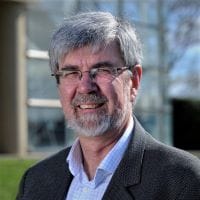
Recent Award Winners
Each year, the Society makes a number of awards, mainly in the fields of science, that are among the oldest and most prestigious awards in Australia.
Awards Winners 2022
The Awards for 2022 were announced at the 1309th Ordinary General Meeting of the Society, held on Wednesday, 7 December 2022.
These included the Cook Medal, which is the Society’s highest honour, and awards for research and scholarly excellence.
The award winners are listed below, together with links to information about the awards and their recipients.
The Cook Medal
James Cook Medal — Emeritus Professor John Church AO FAA FTSE FAMS FAGU
Awards for Research Excellence
Clarke Medal and Lecture (Geology) — Professor Andrew (Andy) Baker FAGU
Edgeworth David Medal — Dr Tim Doherty
History and Philosophy of Science Medal — Emeritus Professor Stephen Gaukroger FRSN FAHA FRHistS FRSA
Burfitt Prize — Distinguished Professor Susan Scott FAA FEurASc
Liversidge Memorial Lecture — Professor Timothy Schmidt FRSN FRACI CChem
Warren Prize — Professor Anita Wing Yi Ho-Baillie FRSN FAIP
Jak Kelly Award — Mr Shankar Dutt
Royal Society of NSW Scholarships — Ms Clara Chung Ming Liu, Mr Thomas Mesaglio, and Ms Anyang (Anya) Zhao
James Cook Medal
Emeritus Professor John Alexander Church AO FAA FTSE FAMS FAGU

The James Cook Medal is awarded periodically by the Royal Society of New South Wales for outstanding contributions to science and human welfare in and for the Southern Hemisphere.
John Church, an Emeritus Professor in the Climate Change Research Centre, UNSW Sydney is the world’s pre-eminent authority on the rate of 20th century sea-level rise, with his work on quantifying historical changes having been pivotal in revolutionising our modern view of sea level rise, including the first detection of the acceleration in the rate of rise. His ground-breaking papers, published with both national and international colleagues, explain a long-standing conundrum about the causes for the observed 20th century sea-level rise. He has provided substantial improvements in estimates of ocean heat uptake, resolving discrepancies between observations and models as well as the causes. In addition, he has been an international leader in sea level assessments and projections and his work has established that anthropogenic climate forcing is responsible for the majority of observed sea level rise since 1970.
Awards For Research Excellence
Clarke Medal and Lecture (Geology)
Professor Andrew (Andy) Baker FAGU
 The Clarke Medal is awarded each year for distinguished research in the natural sciences, conducted in Australia and its territories, in the fields of botany, zoology, and geology (considered in rotation). For 2022, the medal has been awarded in geology.
The Clarke Medal is awarded each year for distinguished research in the natural sciences, conducted in Australia and its territories, in the fields of botany, zoology, and geology (considered in rotation). For 2022, the medal has been awarded in geology.
Professor Andy Baker, of the School of Biological, Earth & Environmental Sciences at UNSW Sydney, is an international authority in cave science, hydrology and geochemistry, especially as it pertains to our understanding of karst — complex underground systems formed from dissolution of soluble rocks, characterised by sinkholes, caves and speleothems (e.g., stalagmites). Having led over AU$10M in external projects in NSW since 2010, he has also published more than 260 internationally refereed papers, including highly-cited publications in Nature, Nature Communications, and Science.
Edgeworth David Medal
Dr Tim S. Doherty
 The Edgeworth David Medal is awarded annually for distinguished research by a young scientist under the age of 35 years for work undertaken mainly in Australia or contributing to the advancement of Australian science.
The Edgeworth David Medal is awarded annually for distinguished research by a young scientist under the age of 35 years for work undertaken mainly in Australia or contributing to the advancement of Australian science.
Dr Tim Doherty, an ARC DECRA Fellow in the School of Life and Environmental Sciences at the University of Sydney, has made extraordinary contributions in the fields of predator-prey dynamics, movement ecology and fire ecology, emerging as a pre-eminent scientist of his generation in developing these fields and in exploring how each is influenced by human modification of the environment. Dr Doherty’s transformative insights have been achieved by combining field experiments with novel theoretical frameworks and global syntheses. Key contributions include revealing that invasive predators have contributed to more than 50% of bird, mammal, and reptile extinctions globally, and conducting vital applied field research on fire and invasive species that informs conservation policy and management.
History and Philosophy of Science Medal
Emeritus Professor Stephen Gaukroger FRSN FAHA FRHistS FRSA
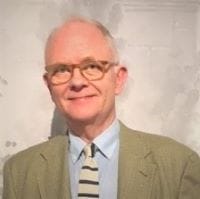 The Society’s History and Philosophy of Science Medal is awarded annually to recognise outstanding achievements in the History and Philosophy of Science, especially the study of ideas, institutions, and individuals of significance to the practice of the natural sciences in Australia.
The Society’s History and Philosophy of Science Medal is awarded annually to recognise outstanding achievements in the History and Philosophy of Science, especially the study of ideas, institutions, and individuals of significance to the practice of the natural sciences in Australia.
Emeritus Professor Stephen Gaukroger is one of the world’s leading historians of science and philosophy. Educated at the University of London and the University of Cambridge, he has held positions at Cambridge, Melbourne, and Sydney, as well as visiting professorships at Oxford, London, Aberdeen, and the École normale supérieure – Paris Sciences et Lettres. Now Emeritus Professor of History of Philosophy and History of Science at the University of Sydney, he is the author of sixteen books, including an internationally renowned intellectual biography of Descartes (1995). His work has been translated in Arabic, Chinese, French, German, Italian, Portuguese, and Russian. His major work is the 4-volume study of science and the shaping of modernity: The Emergence of a Scientific Culture, 1210-1685 (2006); The Collapse of Mechanism and the Rise of Sensibility: 1680-1760 (2010); The Natural and the Human, 1739-1841 (2016); Civilization and the Culture of Science, 1795-1935 (2020).
Burfitt Prize
Distinguished Professor Susan M. Scott FAA FEurASc
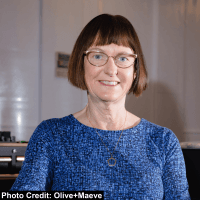 The Walter Burfitt Prize, established as a result of a generous gift to the Society by Dr W.F. Burfitt BA MB ChM BSc, is awarded at intervals of three years for research in pure or applied science. The winner must be resident in Australia or New Zealand, and whose papers and other contributions published during the past six years are deemed of the highest scientific merit.
The Walter Burfitt Prize, established as a result of a generous gift to the Society by Dr W.F. Burfitt BA MB ChM BSc, is awarded at intervals of three years for research in pure or applied science. The winner must be resident in Australia or New Zealand, and whose papers and other contributions published during the past six years are deemed of the highest scientific merit.
Distinguished Professor Susan Scott, from the Australian National University College of Science, is an internationally recognised mathematical physicist who has made fundamental advances in our understanding of the fabric of space-time in general relativity, and in gravitational wave science. She has pioneered breakthrough results probing the existence and nature of space-time singularities, the global structure of space-time, and possible initial and final endstates for cosmological models representing our Universe. Professor Scott has also been a pioneer in the analysis of astrophysical signatures in gravitational wave experiments, including the searches for gravitational waves from asymmetric neutron stars and from inspiralling binary systems of black holes and neutron stars. She has played an important role in the development and promotion of gravitational research worldwide, and a leading role in Australia’s participation in the first direct detection of gravitational waves in 2015.
Liversidge Lectureship
Professor Timothy W. Schmidt FRSN FRACI CChem
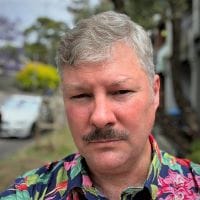 The Liversidge Lecture, established under the terms of a bequest to the Society by Professor Archibald Liversidge MA LLD FRS, who was Professor of Chemistry in the University of Sydney from 1874 to 1907 and was one of the Council members who sponsored the Society’s Act of Incorporation in 1881, is awarded at intervals of two years for the purpose of encouragement of research in Chemistry.
The Liversidge Lecture, established under the terms of a bequest to the Society by Professor Archibald Liversidge MA LLD FRS, who was Professor of Chemistry in the University of Sydney from 1874 to 1907 and was one of the Council members who sponsored the Society’s Act of Incorporation in 1881, is awarded at intervals of two years for the purpose of encouragement of research in Chemistry.
Professor Timothy Schmidt, of the School of Chemistry at UNSW Sydney, is internationally recognised as a molecular spectroscopist working on diverse problems from astrophysics to renewable energy. In the gas phase, he has recorded spectra of many hydrocarbon radicals for the first time and discovered new electronic excitations of the dicarbon molecule. In the condensed phase, his work concentrates on triplet-triplet annihilation and singlet fission for solar energy applications. His work has been recognised by a number of prizes including the Broida Prize (International Symposium on Free Radicals 2015), the Coblentz Award (2010), the RACI Physical Chemistry Lectureship and the RACI Physical Chemistry Medal (2021).
Warren Prize
Professor Anita Wing Yi Ho-Baillie FRSN FAIP
 The Warren Prize consists of a medal and lectureship in recognition of research by engineers and technologists in their early to mid-career. Early-career researchers will have established a publication record in top-tier journals and wish to reach a broader audience, while mid-career researchers will have completed a larger body of work relevant to society.
The Warren Prize consists of a medal and lectureship in recognition of research by engineers and technologists in their early to mid-career. Early-career researchers will have established a publication record in top-tier journals and wish to reach a broader audience, while mid-career researchers will have completed a larger body of work relevant to society.
Professor Anita Ho-Baillie is a pioneer in the development of next-generation solar cells that are key to transitioning to a carbon-free-economy. Focussing on multi-junction solar cells, the aim of her research is to increase their power conversion efficiency towards 40% and 50% when the efficiencies of commercially available silicon solar cells are around 25%. In addition, her recent breakthroughs in improving the durability of perovskite solar cells are critical steps towards commercial viability. Despite the early stage of her career, her outstanding contributions to the important field of energy research are recognised around the world. Four times a Clarivate Analytics Highly Cited Researcher, in 2021 she was named Top Australian Researcher in Sustainable Energy by The Australian and by leading journal ACS Energy Letters, one of 30 leaders in advancing perovskite solar cells and one of 40 Women Scientists at the Forefront of Energy Research in the World.
Jak Kelly Award
Mr Shankar Dutt
 The Jak Kelly Award was created in honour of Professor Jak Kelly (1928–2012), who was Head of Physics at the University of NSW from 1985 to 1989, was made an Honorary Professor of the University of Sydney in 2004, and was President of the Royal Society of NSW in 2005 and 2006. Its purpose is to encourage excellence in postgraduate research in physics. The award is supported by the Royal Society of NSW and the Australian Institute of Physics, NSW branch. The winner is selected from a shortlist of candidates who made presentations at the most recent Australian Institute of Physics (NSW Branch) postgraduate awards meeting.
The Jak Kelly Award was created in honour of Professor Jak Kelly (1928–2012), who was Head of Physics at the University of NSW from 1985 to 1989, was made an Honorary Professor of the University of Sydney in 2004, and was President of the Royal Society of NSW in 2005 and 2006. Its purpose is to encourage excellence in postgraduate research in physics. The award is supported by the Royal Society of NSW and the Australian Institute of Physics, NSW branch. The winner is selected from a shortlist of candidates who made presentations at the most recent Australian Institute of Physics (NSW Branch) postgraduate awards meeting.
Shankar Dutt is a PhD Candidate in the Research School of Physics at the Australian National University. He investigates a nanopore-based sensing platform for the detection of different biomolecules in complex solutions including DNA, proteins and antibodies. This allows tailoring of the biomolecules’ translocation kinetics and, combined with artificial intelligence, aims at early diagnosis of neurodegenerative disorders such as Alzheimer’s Disease and Multiple Sclerosis.
Royal Society of New South Wales Scholarships
The Royal Society Scholarships are awarded annually in order to acknowledge outstanding achievements by young researchers in any field of science. Applicants must be enrolled as research students in a university in either NSW or the ACT on 1 January in their year of nomination.
For 2022, three RSNSW Scholarships have been awarded:
- Miss Clara Chung Ming Liu — PhD Candidate, School of Biomedical Engineering, University of Technology Sydney
- Mr Thomas Mesaglio — PhD Candidate, School of Biological, Earth, and Environmental Sciences, UNSW Sydney
- Ms Anyang (Anya) Zhao — PhD Candidate, John Curtin School of Medical Research, Australian National University
 Miss Clara Liu Chung Ming is a PhD candidate in the School of Biomedical Engineering at the University of Technology Sydney under the supervision of Dr Carmine Gentile. Her research focusses on the bioengineering of advanced 3D in vitro models of the human heart pathophysiology, including “the-heart attack-in-a-Petri-dish” and heart failure using patient derived-stem cells. In particular, Clara has demonstrated that acetylcholine (a natural compound produced by our body) plays a protective role against myocardial infarction (heart attack) and drug-induced heart failure using her cells. Clara’s multidisciplinary project is carried in collaboration with the University of Sydney/Charles Perkins Centre/Sydney Heart Bank, Royal Prince Alfred Hospital and Baker Heart and Diabetes Institute/Monash University. Clara’s research has focussed also on the effects of Sars-CoV-2 on human heart pathophysiology, as well as the bioengineering of pre-eclampsia-induced heart failure using patient-derived stem cells. Her research has received several awards, including Australian Government Research Training Program Stipend (2021), FEIT HDR Women in Engineering and IT awards (2021), ASBTE Rapid Fire Presentation Award (2022) and NSW Education Waratah Scholarship (2022).
Miss Clara Liu Chung Ming is a PhD candidate in the School of Biomedical Engineering at the University of Technology Sydney under the supervision of Dr Carmine Gentile. Her research focusses on the bioengineering of advanced 3D in vitro models of the human heart pathophysiology, including “the-heart attack-in-a-Petri-dish” and heart failure using patient derived-stem cells. In particular, Clara has demonstrated that acetylcholine (a natural compound produced by our body) plays a protective role against myocardial infarction (heart attack) and drug-induced heart failure using her cells. Clara’s multidisciplinary project is carried in collaboration with the University of Sydney/Charles Perkins Centre/Sydney Heart Bank, Royal Prince Alfred Hospital and Baker Heart and Diabetes Institute/Monash University. Clara’s research has focussed also on the effects of Sars-CoV-2 on human heart pathophysiology, as well as the bioengineering of pre-eclampsia-induced heart failure using patient-derived stem cells. Her research has received several awards, including Australian Government Research Training Program Stipend (2021), FEIT HDR Women in Engineering and IT awards (2021), ASBTE Rapid Fire Presentation Award (2022) and NSW Education Waratah Scholarship (2022).
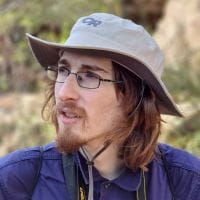 Mr Thomas Mesaglio works on quantifying our knowledge of Australian plant biodiversity, developing identification tools, survey and species description protocols and general data frameworks for improving this knowledge. Although much of his research focuses on analyses of ‘citizen science’ data, he has published scientific papers in disciplines including marine forensics, bushfire recovery and invertebrate ecology and taxonomy. As part of the Environment Recovery Project team, he received the Department of Industry, Science and Resources’ 2022 Eureka Prize for Innovation in Citizen Science. He has published two books: a guide to scientific etymology and a seashell field guide and is a curator and forum moderator on the citizen science platform iNaturalist, with 39,000 observations and 227,000 identifications made for other users.
Mr Thomas Mesaglio works on quantifying our knowledge of Australian plant biodiversity, developing identification tools, survey and species description protocols and general data frameworks for improving this knowledge. Although much of his research focuses on analyses of ‘citizen science’ data, he has published scientific papers in disciplines including marine forensics, bushfire recovery and invertebrate ecology and taxonomy. As part of the Environment Recovery Project team, he received the Department of Industry, Science and Resources’ 2022 Eureka Prize for Innovation in Citizen Science. He has published two books: a guide to scientific etymology and a seashell field guide and is a curator and forum moderator on the citizen science platform iNaturalist, with 39,000 observations and 227,000 identifications made for other users.
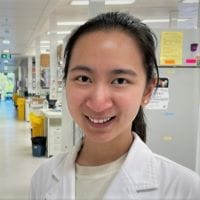 Ms Anyang Zhao‘s research is focused on the clinically important foodborne pathogen called Listeria, which causes 20-30% of death in humans. She has identified that Listeria infection triggers inflammation and cell death, which are biological processes crucial for overcoming Listeria infection. Excessive inflammation caused by the immune system while fighting off Listeria infection can lead to sepsis and death. Anyang’s research aims to inhibit such excessive inflammation and could lead to the development of therapies against sepsis. During her first year of PhD study, Anyang published a preview article in Cell Host & Microbe (2022) as co-first author, and further co-authored two primary research articles in Science Immunology (2022) and Nature Communications. Her research achievements have been recognised by multiple prizes, scholarships and grants.
Ms Anyang Zhao‘s research is focused on the clinically important foodborne pathogen called Listeria, which causes 20-30% of death in humans. She has identified that Listeria infection triggers inflammation and cell death, which are biological processes crucial for overcoming Listeria infection. Excessive inflammation caused by the immune system while fighting off Listeria infection can lead to sepsis and death. Anyang’s research aims to inhibit such excessive inflammation and could lead to the development of therapies against sepsis. During her first year of PhD study, Anyang published a preview article in Cell Host & Microbe (2022) as co-first author, and further co-authored two primary research articles in Science Immunology (2022) and Nature Communications. Her research achievements have been recognised by multiple prizes, scholarships and grants.